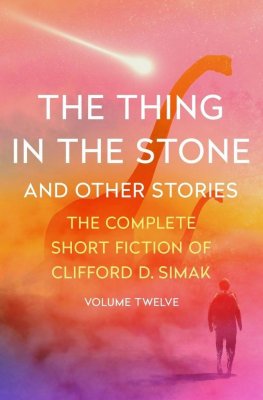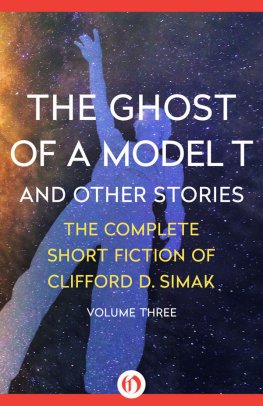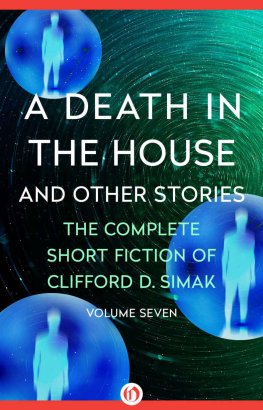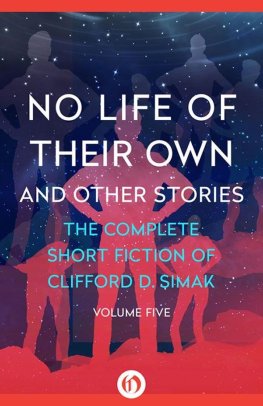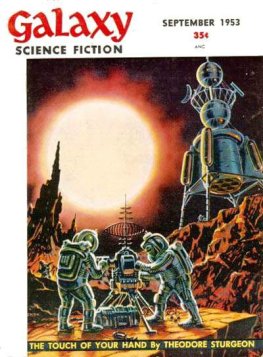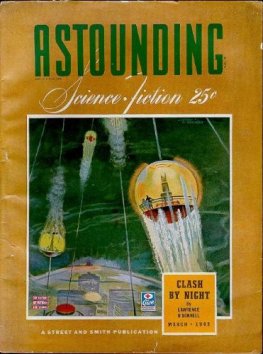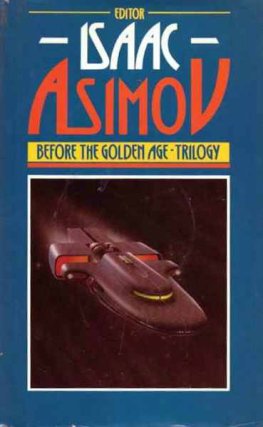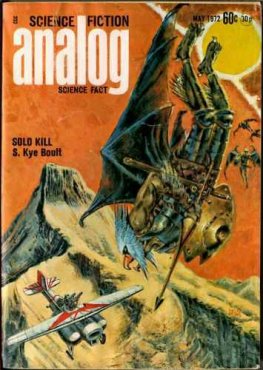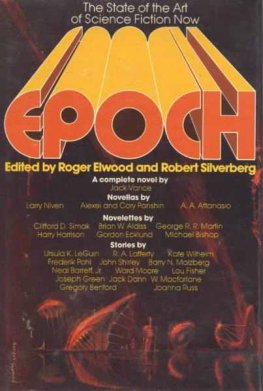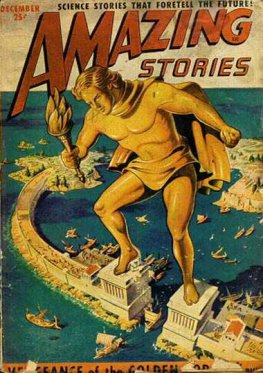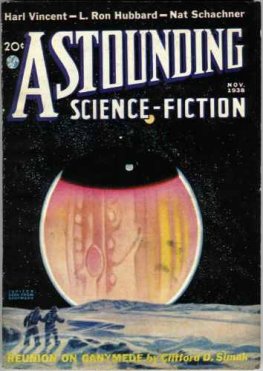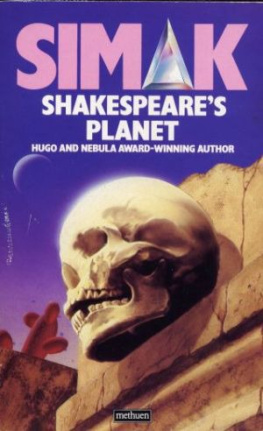Clifford Simak - The Street That Wasn't There
Here you can read online Clifford Simak - The Street That Wasn't There full text of the book (entire story) in english for free. Download pdf and epub, get meaning, cover and reviews about this ebook. year: 2007, genre: Science fiction. Description of the work, (preface) as well as reviews are available. Best literature library LitArk.com created for fans of good reading and offers a wide selection of genres:
Romance novel
Science fiction
Adventure
Detective
Science
History
Home and family
Prose
Art
Politics
Computer
Non-fiction
Religion
Business
Children
Humor
Choose a favorite category and find really read worthwhile books. Enjoy immersion in the world of imagination, feel the emotions of the characters or learn something new for yourself, make an fascinating discovery.

- Book:The Street That Wasn't There
- Author:
- Genre:
- Year:2007
- Rating:5 / 5
- Favourites:Add to favourites
- Your mark:
- 100
- 1
- 2
- 3
- 4
- 5
The Street That Wasn't There: summary, description and annotation
We offer to read an annotation, description, summary or preface (depends on what the author of the book "The Street That Wasn't There" wrote himself). If you haven't found the necessary information about the book — write in the comments, we will try to find it.
The Street That Wasn't There — read online for free the complete book (whole text) full work
Below is the text of the book, divided by pages. System saving the place of the last page read, allows you to conveniently read the book "The Street That Wasn't There" online for free, without having to search again every time where you left off. Put a bookmark, and you can go to the page where you finished reading at any time.
Font size:
Interval:
Bookmark:
The Street That Wasn't There
by CLIFFORD D. SIMAK and CARL JACOBI

Mr. Jonathon Chambers left his house on Maple Street at exactly seven o'clock in the evening and set out on the daily walk he had taken, at the same time, come rain or snow, for twenty solid years.
The walk never varied. He paced two blocks down Maple Street, stopped at the Red Star confectionery to buy a Rose Trofero perfecto, then walked to the end of the fourth block on Maple. There he turned right on Lexington, followed Lexington to Oak, down Oak and so by way of Lincoln back to Maple again and to his home.
He didn't walk fast. He took his time. He always returned to his front door at exactly 7:45. No one ever stopped to talk with him. Even the man at the Red Star confectionery, where he bought his cigar, remained silent while the purchase was being made. Mr. Chambers merely tapped on the glass top of the counter with a coin, the man reached in and brought forth the box, and Mr. Chambers took his cigar. That was all.
For people long ago had gathered that Mr. Chambers desired to be left alone. The newer generation of townsfolk called it eccentricity. Certain uncouth persons had a different word for it. The oldsters remembered that this queer looking individual with his black silk muffler, rosewood cane and bowler hat once had been a professor at State University.
A professor of metaphysics, they seemed to recall, or some such outlandish subject. At any rate a furore of some sort was connected with his name ... at the time an academic scandal. He had written a book, and he had taught the subject matter of that volume to his classes. What that subject matter was, had long been forgotten, but whatever it was had been considered sufficiently revolutionary to cost Mr. Chambers his post at the university.
A silver moon shone over the chimney tops and a chill, impish October wind was rustling the dead leaves when Mr. Chambers started out at seven o'clock.
It was a good night, he told himself, smelling the clean, crisp air of autumn and the faint pungence of distant wood smoke.
He walked unhurriedly, swinging his cane a bit less jauntily than twenty years ago. He tucked the muffler more securely under the rusty old topcoat and pulled his bowler hat more firmly on his head.
He noticed that the street light at the corner of Maple and Jefferson was out and he grumbled a little to himself when he was forced to step off the walk to circle a boarded-off section of newly-laid concrete work before the driveway of 816.
It seemed that he reached the corner of Lexington and Maple just a bit too quickly, but he told himself that this couldn't be. For he never did that. For twenty years, since the year following his expulsion from the university, he had lived by the clock.
The same thing, at the same time, day after day. He had not deliberately set upon such a life of routine. A bachelor, living alone with sufficient money to supply his humble needs, the timed existence had grown on him gradually.
So he turned on Lexington and back on Oak. The dog at the corner of Oak and Jefferson was waiting for him once again and came out snarling and growling, snapping at his heels. But Mr. Chambers pretended not to notice and the beast gave up the chase.
A radio was blaring down the street and faint wisps of what it was blurting floated to Mr. Chambers.
"... still taking place ... Empire State building disappeared ... thin air ... famed scientist, Dr. Edmund Harcourt...."
The wind whipped the muted words away and Mr. Chambers grumbled to himself. Another one of those fantastic radio dramas, probably. He remembered one from many years before, something about the Martians. And Harcourt! What did Harcourt have to do with it? He was one of the men who had ridiculed the book Mr. Chambers had written.
But he pushed speculation away, sniffed the clean, crisp air again, looked at the familiar things that materialized out of the late autumn darkness as he walked along. For there was nothing ... absolutely nothing in the world ... that he would let upset him. That was a tenet he had laid down twenty years ago.
There was a crowd of men in front of the drugstore at the corner of Oak and Lincoln and they were talking excitedly. Mr. Chambers caught some excited words: "It's happening everywhere.... What do you think it is.... The scientists can't explain...."
But as Mr. Chambers neared them they fell into what seemed an abashed silence and watched him pass. He, on his part, gave them no sign of recognition. That was the way it had been for many years, ever since the people had become convinced that he did not wish to talk.
One of the men half started forward as if to speak to him, but then stepped back and Mr. Chambers continued on his walk.
Back at his own front door he stopped and as he had done a thousand times before drew forth the heavy gold watch from his pocket.
He started violently. It was only 7:30!
For long minutes he stood there staring at the watch in accusation. The timepiece hadn't stopped, for it still ticked audibly.
But 15 minutes too soon! For twenty years, day in, day out, he had started out at seven and returned at a quarter of eight. Now....
It wasn't until then that he realized something else was wrong. He had no cigar. For the first time he had neglected to purchase his evening smoke.
Shaken, muttering to himself, Mr. Chambers let himself in his house and locked the door behind him.
He hung his hat and coat on the rack in the hall and walked slowly into the living room. Dropping into his favorite chair, he shook his head in bewilderment.
Silence filled the room. A silence that was measured by the ticking of the old fashioned pendulum clock on the mantelpiece.
But silence was no strange thing to Mr. Chambers. Once he had loved music ... the kind of music he could get by tuning in symphonic orchestras on the radio. But the radio stood silent in the corner, the cord out of its socket. Mr. Chambers had pulled it out many years before. To be precise, upon the night when the symphonic broadcast had been interrupted to give a news flash.
He had stopped reading newspapers and magazines too, had exiled himself to a few city blocks. And as the years flowed by, that self exile had become a prison, an intangible, impassable wall bounded by four city blocks by three. Beyond them lay utter, unexplainable terror. Beyond them he never went.
But recluse though he was, he could not on occasion escape from hearing things. Things the newsboy shouted on the streets, things the men talked about on the drugstore corner when they didn't see him coming.
And so he knew that this was the year 1960 and that the wars in Europe and Asia had flamed to an end to be followed by a terrible plague, a plague that even now was sweeping through country after country like wild fire, decimating populations. A plague undoubtedly induced by hunger and privation and the miseries of war.
But those things he put away as items far removed from his own small world. He disregarded them. He pretended he had never heard of them. Others might discuss and worry over them if they wished. To him they simply did not matter.
But there were two things tonight that did matter. Two curious, incredible events. He had arrived home fifteen minutes early. He had forgotten his cigar.
Huddled in the chair, he frowned slowly. It was disquieting to have something like that happen. There must be something wrong. Had his long exile finally turned his mind ... perhaps just a very little ... enough to make him queer? Had he lost his sense of proportion, of perspective?
No, he hadn't. Take this room, for example. After twenty years it had come to be as much a part of him as the clothes he wore. Every detail of the room was engraved in his mind with ... clarity; the old center leg table with its green covering and stained glass lamp; the mantelpiece with the dusty bric-a-brac; the pendulum clock that told the time of day as well as the day of the week and month; the elephant ash tray on the tabaret and, most important of all, the marine print.
Font size:
Interval:
Bookmark:
Similar books «The Street That Wasn't There»
Look at similar books to The Street That Wasn't There. We have selected literature similar in name and meaning in the hope of providing readers with more options to find new, interesting, not yet read works.
Discussion, reviews of the book The Street That Wasn't There and just readers' own opinions. Leave your comments, write what you think about the work, its meaning or the main characters. Specify what exactly you liked and what you didn't like, and why you think so.

